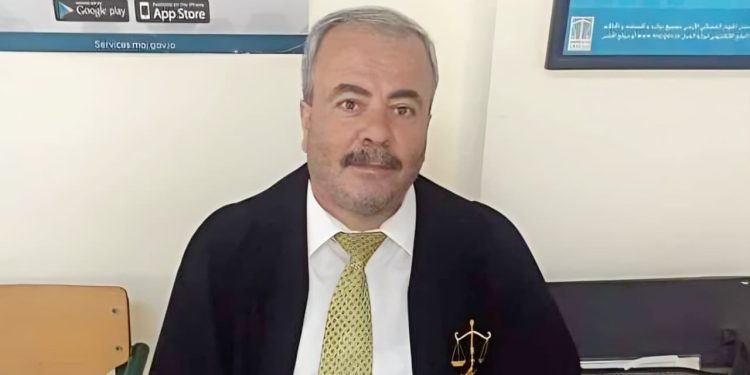The family of lawyer Firas Al-Rousan has reported that their son has begun an open-ended hunger and thirst strike inside Bab Al-Hawa Prison, in protest at being denied access to his prescribed medication, amid concerns over his health condition.
The security services arrested Al-Rousan on 7 August 2025 in front of his family’s diwan in the town of Sama Al-Rousan, northern Jordan, along with several family members and friends. This followed plans to hold an event at the family’s diwan in the city of Irbid in solidarity with Gaza and in opposition to the occupation, according to his relatives. On 10 August, the Bani Kenana Public Prosecutor decided to extend the detention of Al-Rousan and others involved in the case.
To date, available information indicates that Al-Rousan has not received his prescribed treatment, despite several days having passed since his detention. This situation constitutes a violation of inmates’ right to healthcare as stipulated in Article 8 of the Jordanian Reform and Rehabilitation Centres Law, which obliges prison administrations to provide necessary medical care. It also contravenes Article 22 of the Nelson Mandela Rules (the United Nations Standard Minimum Rules for the Treatment of Prisoners), which stress the provision of healthcare services equivalent to those available in the wider community, without discrimination.
The denial of necessary medical treatment may amount to cruel or inhuman treatment, prohibited under Article 7 of the International Covenant on Civil and Political Rights, to which Jordan is a party and which forms part of its binding international legal obligations.
An open-ended hunger and thirst strike further compounds the serious health risks to Al-Rousan’s life, placing an even greater duty on the authorities to safeguard his physical and mental wellbeing.
In light of these developments, attention now turns to the management of the Reform and Rehabilitation Centres and the relevant judicial authorities to take urgent action to ensure that Al-Rousan receives his prescribed medication immediately and is able to exercise his right to defend himself in an environment that respects his dignity and fundamental rights.


























